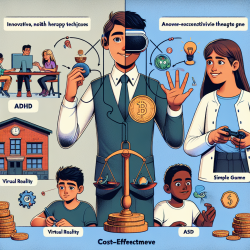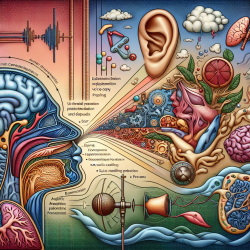Introduction
In today's fast-paced world, children are spending less time outdoors, leading to a phenomenon known as "nature deficit disorder." As technology captures more of their attention, the importance of outdoor play has diminished. However, recent research highlights the significant health benefits of spending time in nature. This blog delves into how parks can be a powerful tool in improving children's health and how practitioners can leverage these findings to enhance their skills and outcomes.
The Health Benefits of Parks
According to the research article "Just What the Doctor Ordered: Using Parks to Improve Children’s Health," parks offer a myriad of health benefits for children. These include improved physical fitness, enhanced emotional well-being, and better cognitive function. For instance, outdoor activities in parks can lead to better test scores, improved self-discipline, and reduced behavioral problems, including symptoms of ADHD.
Moreover, parks can mitigate health disparities related to income by providing accessible green spaces that promote physical activity and social interaction. This is crucial in urban settings where children may have limited access to safe outdoor environments.
Implementing Park Prescriptions
One innovative approach gaining traction is the concept of "park prescriptions." This involves healthcare providers prescribing time in nature as part of a treatment plan. Programs like Healthy Parks Healthy People, supported by the National Park Service, aim to integrate park visits into disease treatment and prevention strategies.
Practitioners can adopt similar approaches by collaborating with local parks and recreation agencies to create structured programs that encourage families to spend more time outdoors. This not only promotes physical health but also fosters community building and emotional resilience.
Encouraging Further Research
While the benefits of nature are well-documented, there is still much to learn about the specific mechanisms through which these benefits occur. Practitioners are encouraged to engage in further research to explore the "dose" of nature required to achieve optimal health outcomes. Randomized controlled trials and longitudinal studies can provide valuable insights into the long-term benefits of park prescriptions.
By contributing to this growing body of research, practitioners can help solidify the role of parks in pediatric healthcare and advocate for policies that prioritize green space access for all children.
Conclusion
Parks are more than just recreational spaces; they are vital components of a healthy childhood. By incorporating park visits into children's routines, practitioners can enhance their physical, emotional, and cognitive development. As we continue to explore the health benefits of nature, let us embrace the potential of parks as a low-cost, readily available tool for improving children's health.
To read the original research paper, please follow this link: Just What the Doctor Ordered: Using Parks to Improve Children’s Health.










